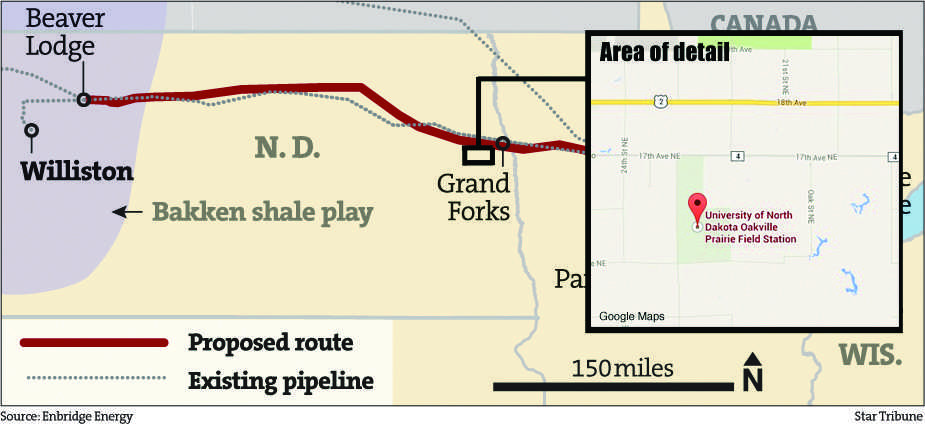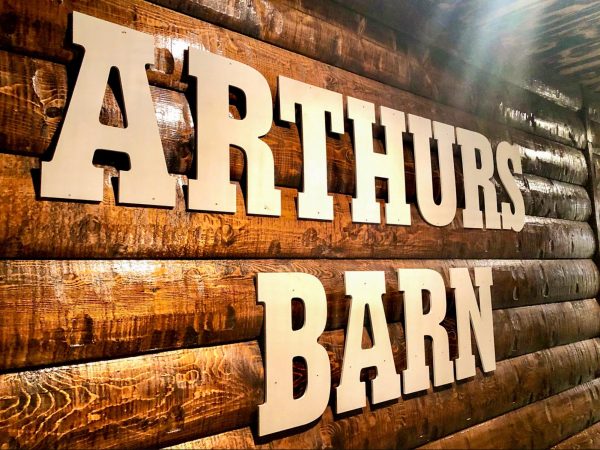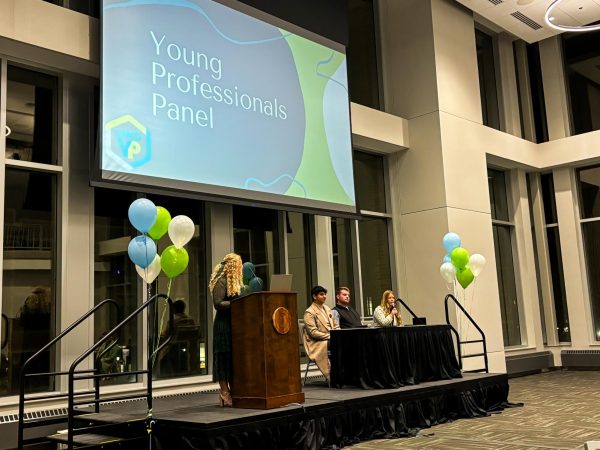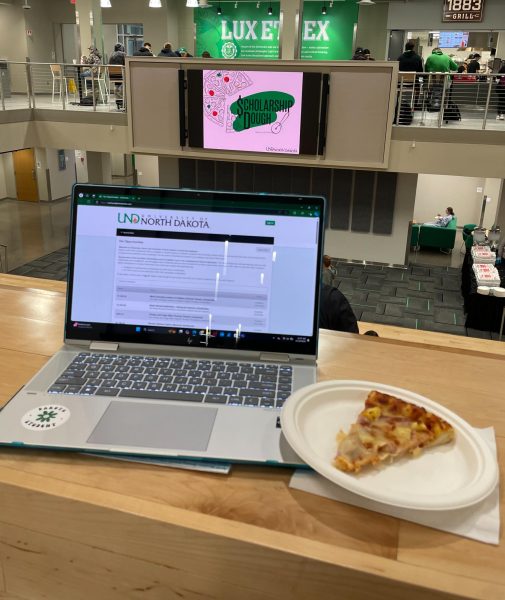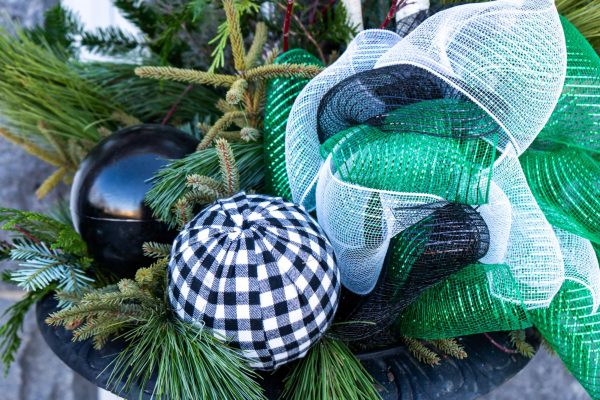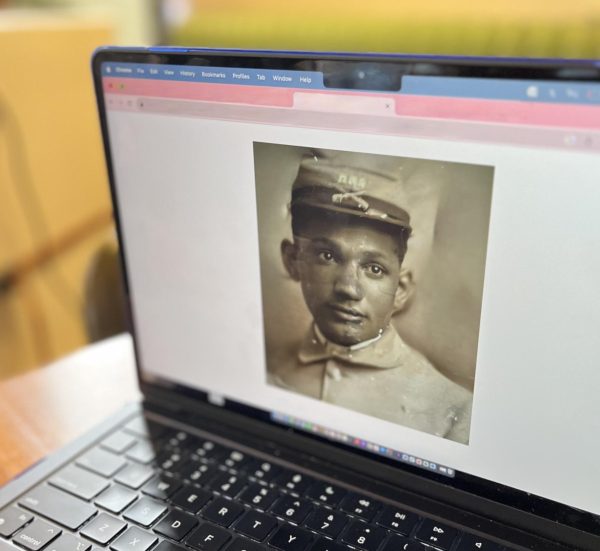Pipeline proposal threatens prairie research
— According to plans, Sandpiper pipeline will cut through prairie used by UND for research
Faculty and students in the UND research department are taking a stand against a pipeline that will possibly be routed through one of the university’s research areas, Oakville Prairie. The Sandpiper pipeline is being planned by the Enbridge company to transport oil from western ND to Duluth, MN. Enbridge applied for the $2.6 billion project last year in October and has been talking with North Dakota conservation agencies since April.
If the pipeline is built, it could have negative consequences for the research conducted on the land.
“The pipeline itself is not a concern for my office —— our concern is simply with a very small portion of the route, because part of the proposed route would cross this native prairie,” said Phyllis Johnson, Vice President for Research and Economic Development at UND.
Johnson is also chair of the university’s field station committee, which manages the lands used by the university as research sites, including Oakville Prairie.
The site, located seven miles west of Grand Forks, is one of the last pieces of untouched prairie in North Dakota.
“This land is very similar to the way it was before white settlers came to the area, before statehood. It has a unique collection of native plants and insects, and it is an important bird habitat,” Johnson said. “Our main concern is that if the land was disturbed and the ecosystem changed, it would lose some of its value as a resource for scientific research.”
“One of the values in science, particularly in ecology where you’re studying what happens in the environment, is being able to go back to the same place repeatedly over time. If that place has changed, then it affects the comparisons you can make.”
Kathryn Yurkonis, a UND biology professor who specializes in grassland ecology, is also concerned with how the site would be affected scientifically.
“The pipeline has a disturbance and an impact. If proper steps are not taken, it will be a different place. It will alter what we can do with the prairie as a research area.”
Yurkonis has provided her input and expertise to the field station committee Johnson directs, which has taken action to protect the prairie.
Johnson testified on behalf of the committee and UND at a Public Service Commission hearing in Grand Forks on Feb. 19. The hearing is one of three the commission is holding in different cities to decide what should happen with the pipeline’s construction and routing.
Yurkonis and UND grassland ecology graduate student Bryon Deal also attended the hearing. Deal will soon be using Oakville Prairie as the chief site for his research on plant and insect communities.
“There are so many fantastic things to look at out there, and I’m not quite sure yet how the pipeline will effect that,” Deal said. “It depends on how careful they are with the construction – it wouldn’t be good for them to drive heavy equipment over the communities I sample.”
UND Wildlife Society member and senior fish and wildlife major Drew MacDonald agreed the construction and maintenance could be a potential issue with the pipeline.
“It depends on if their work is minimally intrusive, or if people are always out there checking up on it,” he said.
Leila Mohsemian, a junior who also belongs to the Wildlife Society and majors in wildlife biology, was more concerned with what would happen to the area over time.
“One of my issues is that this is one of the last pieces of untouched prairie,” he said. “Soil takes so much time to replenish, and if it is disturbed, we can never get the same thing back.”
Even if the pipeline is built, Phyllis Johnson said she hopes the company will consider a compromise.
“The Public Service Commission has authority to direct the pipeline company to change the route, or do other things to minimize the damage,” Johnson said. “We will have to wait and see what they say, ultimately.”
Emmy Erbes a staff writer for The Dakota Student. She can be reached at [email protected].


